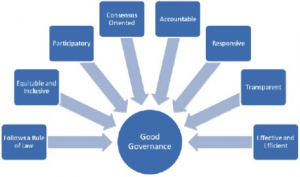Do you remember your first “real job”? You know, the one that actually got your career started?
I sure do.
I had just graduated from college and I was thrilled to finally be working full time. In fact, I was so excited that I took my wife on a tour of the office, showed her my cubicle, stylish new laptop and double-monitor desk setup.
Then, I showed her the rest of the office. We had free drinks and snacks, a ping pong table and even guitars that I could use whenever I needed a quick break from the job. To make things even better, work paid for a catered lunch on Fridays.
Clearly, I was working for a business with a great company culture.
And, all of those shiny perks were great…for about a week. Unfortunately, while the ping pong and free lunch were nice, my trainer was not.
Although I had done pretty well in college, I still had a lot to learn before I could succeed in my new, fairly technical job. There was a lot to learn. That meant I had to ask my trainer a lot of questions…often multiple times.
But, whenever I’d ask a question, I’d get an answer along the lines of, “I thought we already went over this. Do I have to explain this to you again?”
Truth be told, I don’t really blame my trainer. He had a lot of demands on his time and I’m certain that my questions were pulling him away from his own projects. As a result, training me was probably pretty frustrating.
However, after a few weeks of this treatment, I was feeling confused, overwhelmed and miserable.
And, I couldn’t have cared less about that ping pong table.
Then, something happened that changed everything. I was sitting at my desk one afternoon trying to figure something out when a coworker from another team walked up to my desk and asked me how things were going. My pride got the better of me, so I said everything was fine.
He didn’t buy it.
Sensing how overwhelmed I was, he grabbed a chair, sat down beside me and said, “Let me see what I can do to help.”
For the next two months, this coworker spent significant time every day helping me build the skills and confidence I needed to become one of the top performers in the company.
Now, this coworker wasn’t getting paid to spend time helping me. Truth be told, he often stayed late helping me out, which meant sacrificing time with his family. But, in a couple of months, he completely changed my perspective on the company and life.
Years later, I don’t think about my first job and remember the guitars or free drinks. I remember my friend and mentor.
The Secret to Great Company Culture
“Company culture” is something of a buzzword these days. However, when most people talk about “company culture”, they usually focus on perks like a laid-back atmosphere or free food.
But think about a job that you truly loved. What was it that you loved most about the job?
Was it the perks…or the people?
You can throw weekly parties for your employees, but if your company isn’t fostering a culture where people care about the success of the business and their coworkers, you’re missing the mark.
The question is, how do you create a healthy company culture—one where your employees love to come to work?
While the specific tactics will vary depending on your business and the personalities of your employees, great company cultures are ultimately focused on two things: results and relationships.
Results
Although it may seem a little odd to talk about results in the context of company culture, work is all about results—regardless of your job title.
For example, if your janitor doesn’t produce results, your filthy conference room might make your business look bad and jeopardize an important partnership. That puts your company at risk and your janitor’s job at risk, too.
Free drinks won’t solve that problem.
Same goes for employees a little higher up the food chain. If your head of sales isn’t getting results, your whole company could go under. A few rounds of foosball won’t make anyone feel good about being on a sinking ship.
If your business is producing results, it’s living its mission and providing value. People feel good when they feel like they are doing a good job and their efforts are making a difference.
No free lunch tastes as good as succeeding at work feels.
And, ultimately, company culture is all about how people feel at work. If the results are there, your employees will feel good about work. If the results aren’t there, no amount of perks will make up the difference.
Relationships
Of course, even if you’ve got great results, if people don’t like who they are working with, they won’t like coming to work.
As it turns out, fostering positive relationships in the workplace is one of the best ways to create a great company culture. Simply having a good friend at work increases employee loyalty and makes people more committed to delivering results.
While this might seem like a good justification for office ping pong tournaments, “playing games” is not the same thing as “building relationships.”
Remember high school? Odds are, you had a lot of fun with your friends. But how many of them do you still regularly talk to?
On the other hand, think about the friends you keep in regular contact with. I’d be willing to bet that—just like the mentor in my story—you shared something deeper with those friends than a game of Mario Kart.
As important as results are, your company culture can’t just be about driving results for the business—your employees need to be creating meaningful relationships with each other, too.
Conclusion
Ultimately, a great company culture isn’t about perks—it’s about people. I don’t know where I’d be in my life if the company culture at my first job had ended with foosball tables in the break room.
But, having a coworker who was committed to results and relationships changed my entire outlook at work. This coworker was committed to playing his part in a company culture that was about so much more than free lunch.
And ultimately, that company culture changed my life.
Over the course of my career (including starting a business of my own), one thing has become clear to me. If results and relationships are at the heart of your company culture, your business is on the path to success. If not, your business is headed for trouble.
Business & Finance Articles on Business 2 Community(54)






